Should you eat Dairy products? Part 3: Is even good quality dairy unsuitable for humans?
To drink milk, or not to drink milk, is a question that isn’t easily answered. There are a lot of conflicting theories about dairy products, depending on where you’re looking for your information.
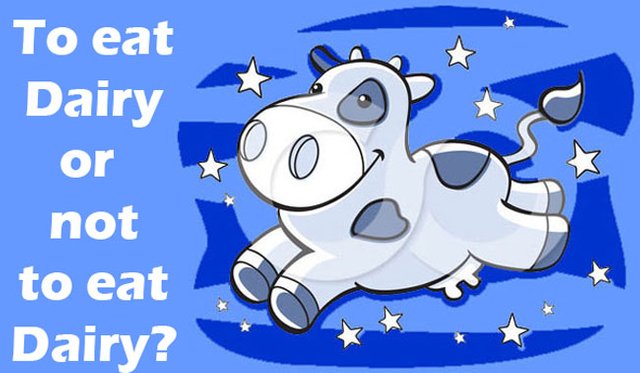
When thinking about whether any food might be suitable for humans, a good rule of thumb is often to ask “Would (or could) my ancestors have eaten this?”
Our ancestors originally ate what they could hunt or gather – wild game, berries and fruit, greens and vegetables, nuts and seeds. Later when they were able to domesticate animals, dairy products and eggs were added. Grains and legumes weren’t commonly eaten till humans settled in one place, instead of being nomadic, and were able to regularly grow crops.
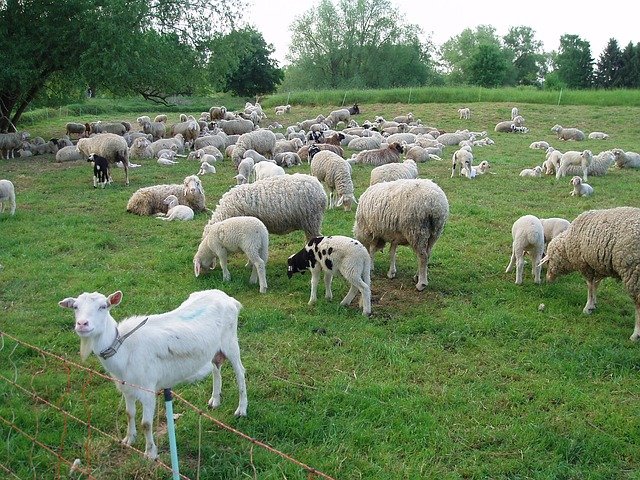
Goats and sheep were domesticated around 9000 BC, and cows around 7000 BC. So not a huge amount of time, in evolutionary terms. Some of us have adapted to thrive on dairy, and some don’t do well even on the best milk around.
We’ve already talked about the drawbacks of bad quality milk, now let’s look at possible drawbacks of good quality milk. The main problem is that nature designed milk as a food for baby cows:
• Calves have very different digestive systems to either baby or adult humans.
• The milk protein is different from the protein in human milk, as is the type of fat. Goat and sheep milk are much closer to human milk in composition than cows milk.
• And remember that no other species continues to drink milk beyond infancy.
There are two problems caused by this.
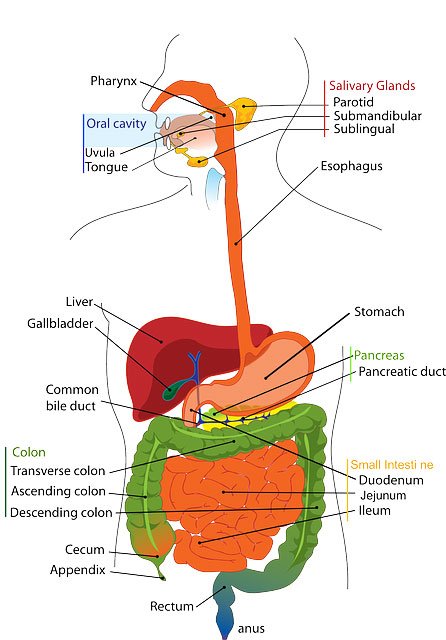
One is that we don’t have the same digestive system as calves. So, many people are unable to properly digest dairy products, and undigested food leads to a variety of health issues. This is one of the reasons for so many dairy allergies and intolerances. (Another, of course, is the appalling quality of most commercial milk, as discussed earlier.) We’ll look at this in more depth next post.
The other is that even if we are able to digest it, it is a high calorie food designed for fattening up growing juveniles. So in practical terms, often people may feel really good on good quality raw milk, but may find that that they put on weight. So the milk is nourishing them – too well!
But we are evolving organisms, and SOME people, through need or longer hereditary exposure have learned to be nourished by milk. There is too much evidence of people regaining their health after drinking good quality raw milk to discount the possibility.
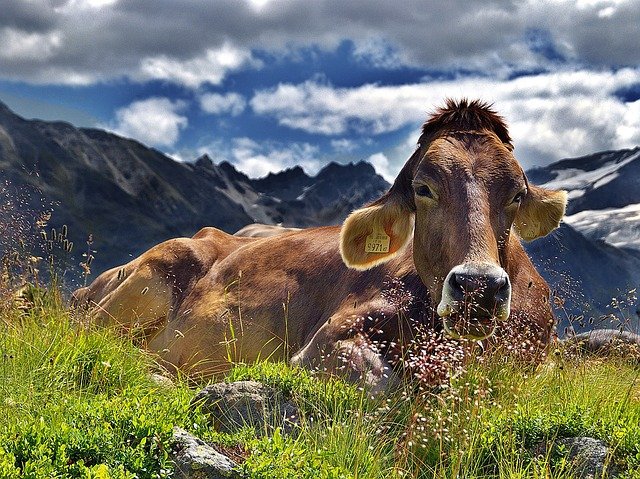
People who do well on milk could include:
• Some people have ancestors who relied on milk for their protein and fat source, such as those from India or the Swiss Alps. These people are likely to actually need milk products.
• Some people from the Middle East would have ancestors who drank goat or sheep milk, and would do well on goat milk, but maybe not so well on cow’s milk.
• Some people can quite happily drink any kind of milk with no apparent ill effects, but don’t really need it.
Others may not necessarily be as well suited genetically, but may need the nutrients due to lifestyle choice or circumstance. Those who are unable to get adequate protein, animal fat and fat soluble vitamins from their diets could include:
• Vegetarians, especially those who don’t eat fish. As well as protein and fat soluble vitamins, animal products are the only source of Vitamin B12.
• People with limited financial resources may not be able to afford meat regularly. Dairy products and eggs will help supply the necessary nutrients.
• Adelle Davis, in her classic book from the 60’s Let’s have Healthy Children, recommends raw or cultured, full cream milk for all children. This would especially apply to those infants who are unable to be breastfed, or children who are undernourished due to poverty. For those who can’t tolerate cows milk, she recommends yoghurt or goat milk.
• In many third world countries, dairy products are vital for survival.
• An anecdote – When the US was first settled, it was a very hard life, and many people had to return to England, as they couldn’t support themselves on the land. It wasn’t until they were able to keep cows and drink the milk, that enough people were able to stay and remain in health.

If you fall into one of these categories, you have lots of variety. Once you choose the best quality milk you can find, and get it home, there are different ways you can use it:
• As is, eg. in smoothies
• Made into yoghurt or kefir, so that it has less lactose and more beneficial acids
• Skim off the cream and either use it fresh, sour it, or make it into crème fraiche or butter
• Make it into cheeses
• Make homemade ice cream, from cream, egg yolks, and natural sweeteners and flavourings
• If you’re lucky, you’ll be able to buy not only raw, organic milk, but ready made raw butter, cream, and cheese.
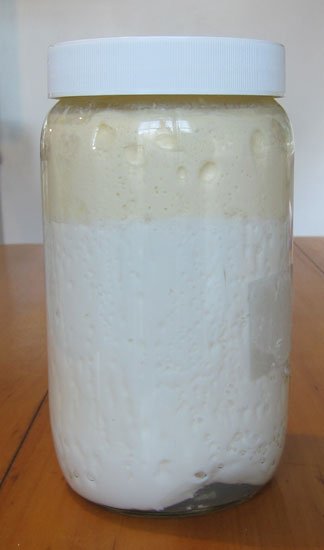
The ways you use your dairy produce will depend on your taste, lifestyle and individual tolerances. We will cover how to best use your dairy, in more detail, in a later post.
There are probably not many people who actually NEED dairy, but as with grains, most of us have come to like and want it. It can be a very convenient food, but isn’t always necessary. So we need to weigh up our habits and wants against our body’s need, consider the pros and cons and make our own decisions. Only you can figure out whether dairy products are beneficial, neutral or harmful for you, and make your choices accordingly. After all, all manner of rubbish that we never evolved to eat is sold under the guise of food in every supermarket!
Next time we will talk more about some specific ways that dairy might be a problem for some people. A later post will cover what to have instead if dairy doesn’t work for you.
EDIT - some clarifications - thanks to people's comments for this:
• Yes, I am referring specifically to cow’s milk with this series of posts.
• Other milks such as sheep, goat, camel, and buffalo may be digested and absorbed much better than cow’s milk. Although you can still apply some of these principles to them, if you are unsure.
• Although some people can react to butter or ghee, in general I’m not covering those either. The majority of people have no problem with those, and they are good sources of fat soluble vitamins. I will talk about some alternatives in the last post, if you are in the minority who can’t tolerate them. See my post on fats here.
Thanks for reading
Photos by myself, @sift666 or from Pixabay, unless otherwise stated.
Follow me for more health, nutrition, food, lifestyle and recipe posts.

Contact me in Discord, SteemitChat, or through Peerhub to ask about one on one nutritional coaching or EFT (Emotional Freedom Technique) sessions by Skype. Bitcoin, Steem or Paypal accepted.
Some of my previous posts on NUTRITION:
• The wide variety of healthy diets out and what they have in common
• The travels of Weston A Price and his discoveries about healthy diets
• Good fats vs bad fats
• DNA testing for better Health & Fitness
• DNA testing part 2: How Well Do I Digest Carbs?
• DNA testing Part 3: I can’t eat Carbs & How to Manage that
• About the Gut & Psychology syndrome (GAPS) diet Part 1 – Can it help autism?
• GAPS diet Part 2: Foods we can’t have
• GAPS diet Part 3: Foods we CAN have
• GAPS diet Part 4: What if I can’t eat some animal foods
• Salicylate intolerances
• Introduction to the Paleo diet
• How to get started on a Real Food diet Part 1
• Why use Real Food diets for healing
• How to get started on a Real Food diet Part 2
• We did a three day water fast
• Comparison of different diets – which is for you?
• Should you eat Dairy? Part 1: Pasteurisation
• Cashews and the Paleo diet
• Should you eat Dairy? Part 2: Quality
• Is salt good or bad for you?


Once again, excellent post.
I have read about the sheep's milk being better for infants. I have also read that, if you can get it, that camel's milk is even better. This seemed ridiculous to me at first, until I searched and found that, with our new found global economy, there are people who are attempting to make this available. As demand goes up, the incentive to supply it will also increase.
I think this was specifically the milk from the Arabian camel. I don't know anything about milk from the two humped, Bactrian camel, but they are endangered, and so exceedingly rare.
I was wondering if this post is implying mostly cow milk. So, the discuss for other milk is here.
We don't have cow milk production in Singapore - all imported.
Somehow, we have a farm producing goat milk. It was interesting for me to learn about it's existence some years back.
This post is from a Steemian out of NZ, so, I'm guessing it will be primarily about cow's, sheep's, and goat's milk. If I am incorrect, please let me know.
From what I understand, goat's milk is one of the best. It even contains capryllic acid which is very good for achieving a state of ketosis (fat burning metabolism). It is for this, as it is for most things, consumption of anything is for the individual to determine.
Yes, mostly I am referring to cow's milk when I say dairy, as that is what is predominant here (and other western countries). I think other animals milk has different effects, and are much better tolerated. There are a lot more types available now than when I first wrote this article, so I will look into that more in one of the later posts.
Thanks for the reply. I probably should see if there's an offer on goat milk. :-)
Yes, mostly cows milk. See what I replied to lifeworship.
I did a search and there seems to be someone selling camel milk quite close to us. So I'm going to see what I can find out, and might try some.
I've had buffalo milk quite a bit so we do have more choices now.
Just after I left the camel milk comment, I hear someone on the Bulletproof podcast talking about selling it in the US. That is a long way from you, but I might try it. I've never had Buffalo milk, it sounds like something else to check out. Thanks.
I have actively been trying to locate some 'whole' milk here in the Western Cape without success so far. But I shall persevere {smile}
Ya just have to do the best you can {smiling back}. You can always ferment it to make it better for you. (meaning a person, not saying you need to, being one of the lucky ones)
Very interesting information! I have been convinced for years I might die without access to butter, lol.
Love seeing your milk kefir and looking forward to that post! Have you also tried water kefir?
Yes, I have had water kefir, though I killed my last lot of grains :-(
After your comment, I made some changes to the post to point out that I'm not including butter here (or at least not for most people)